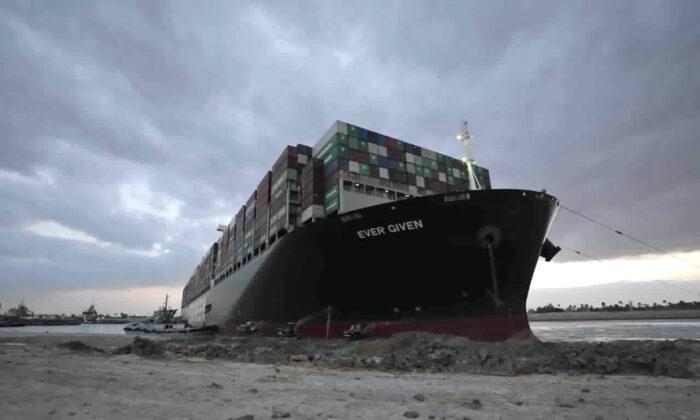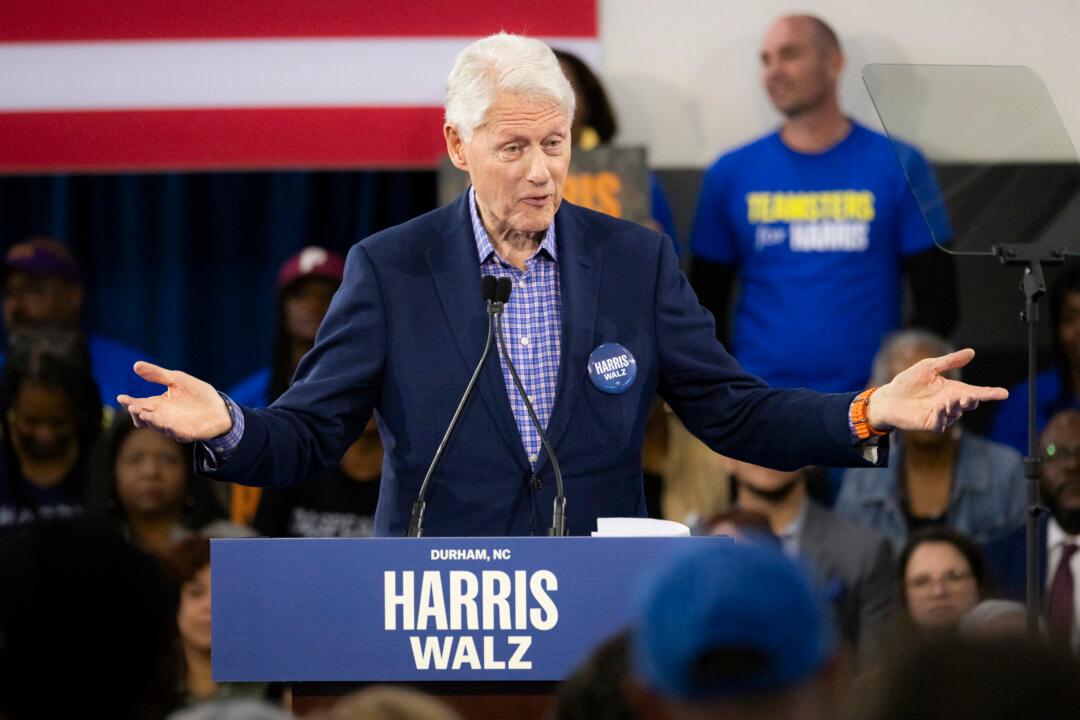The grounded container ship-caused Suez Canal stoppage might impact the transit of U.S. military vessels, said a Pentagon spokesperson on Sunday.
The more than 1,000-foot long Ever Given ship became jammed diagonally across a southern section of the canal in high winds about five days ago, which totally halted shipping traffic. The Suez Canal, located in Egypt, allows for vessels to pass from the Indian Ocean to the Mediterranean Sea. Without it, ships have to travel south around South Africa’s Cape of Good Hope, adding potentially thousands of miles to trips.
A Defense Department spokesperson did not elaborate on the specific impacts that the Suez stoppage would create for U.S. military vessels.

Shippers affected by the blockage may be offered discounts, Rabie said, adding that he believed investigations would show the canal was not responsible for grounding the Ever Given, one of the world’s biggest container ships.
“There are positive indicators from yesterday and the day before yesterday,” Rabie told Egyptian state TV. “The rudder was not moving and it is now moving, the propeller is working now, there was no water underneath the bow, and now there is water under it, and yesterday there was a 4-meter deviation in the bow and the stern.”
About 15 percent of world shipping traffic transits the Suez Canal, which is a key source of foreign currency revenues for Egypt. The current stoppage is costing the canal $14 to 15 million daily.
Shipping rates for oil product tankers nearly doubled after the ship became stranded, and the blockage has disrupted global supply chains, threatening costly delays for companies already dealing with COVID-19 restrictions. If the blockage drags on, shippers may decide to reroute their cargoes around the Cape of Good Hope, adding about two weeks to journeys and extra fuel costs.





